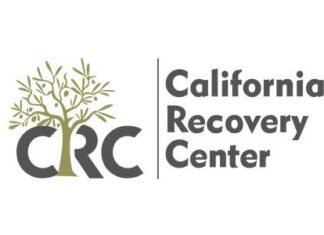Recent Local Scams and Tips from Roseville PD
Roseville, CA- Falling victim to a scam can happen to anyone. Whether you are young or old, male or female, wealthy or not criminals are scheming to steal your money or personal information. These crooks are clever and are always coming up with new scams and twists on old ones in order to swindle people out of their money.
Scams happen in Roseville, too. Here are just a few that have occurred here in the past month:
- An unknown male suspect identified himself over the phone as a Social Security employee and scammed the victim. The victim provided $500 worth of iTunes gift cards.
- Over a three day period, the victim had been contacted by an unknown suspect who claimed to be a technician that worked at Apple in Cupertino. The victim allowed the suspect to gain access to his computer and the suspect was able to take over the computer. One thousand dollars was taken from the victim’s bank account. The suspect also had the victim buy twenty google play cards worth $25 each. The suspect told the victim this was necessary so he could keep the victim safe.
- Victim reported that an unknown male saying he was from Apple Tech Support contacted her via telephone and convinced her to purchase Google Play Cards, Walmart gift cards, and Game Stop gift cards. Estimated loss: $20,000.
- An unknown suspect stole over $6,000 from the victim via a phone scam.
Tips to Stay Ahead of Scammers
It is often difficult to figure out if a request from a business is legitimate or a scam. With that in mind, the Federal Trade Commission (FTC) offers some practical tips to help you stay a step ahead of scammers.
- Spot imposters. Scammers often pretend to be someone you trust, like a government official, a family member, a charity, or a company you do business with. Don’t send money or give out personal information in response to an unexpected request – whether it comes as a text, a phone call, or an email.
- Do online searches. Type a company or product name into your favorite search engine with words like “review,” “complaint” or “scam.” Or search for a phrase that describes your situation, like “IRS call.” You can even search for phone numbers to see if other people have reported them as scams.
- Don’t believe your caller ID. Technology makes it easy for scammers to fake caller ID information, so the name and number you see aren’t always real. If someone calls asking for money or personal information, hang up. If you think the caller might be telling the truth, call back to a number you know is genuine.
- Don’t pay upfront for a promise. Someone might ask you to pay in advance for things like debt relief, credit and loan offers, mortgage assistance, or a job. They might even say you’ve won a prize, but first you have to pay taxes or fees. If you do, they will probably take the money and disappear.
- Consider how you pay. Credit cards have significant fraud protection built in, but some payment methods don’t. Wiring money through services like Western Union or MoneyGram is risky because it’s nearly impossible to get your money back. That’s also true for reloadable cards (like MoneyPak or Reloadit) and gift cards (like iTunes or Google Play). Government offices and honest companies won’t require you to use these payment methods.
- Talk to someone. Before you give up your money or personal information, talk to someone you trust. Con artists want you to make decisions in a hurry. They might even threaten you. Slow down, check out the story, do an online search, consult an expert – or just tell a friend.
- Hang up on robocalls. If you answer the phone and hear a recorded sales pitch, hang up and report it to the FTC. These calls are illegal, and often the products are bogus. Don’t press 1 to speak to a person or to be taken off the list. That could lead to more calls.
- Be skeptical about free trial offers. Some companies use free trials to sign you up for products and bill you every month until you cancel. Before you agree to a free trial, research the company and read the cancellation policy. And always review your monthly statements for charges you don’t recognize.
- Don’t deposit a check and wire money back. By law, banks must make funds from deposited checks available within days, but uncovering a fake check can take weeks. If a check you deposit turns out to be a fake, you’re responsible for repaying the bank.
- Sign up for free scam alerts from the FTC at ftc.gov/scams. Get the latest tips and advice about scams sent right to your inbox.
Scammed? What to do
If, despite your best efforts, you realize you have given money or personal information to a scammer:
- Stop all contact with them immediately.
- If you sent money or gave out your credit card number, contact your bank or financial institution.
- If you lost money, file a report with your local law enforcement agency.
- Consider putting a freeze on your credit reports through Experian, Equifax, and TransUnion. This is free.
Scams are increasing every year, and it’s important to become educated on how to avoid becoming a scam victim. If you have teenagers or young adults in your family, make sure to talk to them about protecting their money and personal information. Talk about this issue often and stress its importance. The more knowledge you have regarding scams, the less likely you will become a scam victim.
(21+ years strong)
Welcome to the brighter side!
Get in front of local customers! 24/7 (365)





















